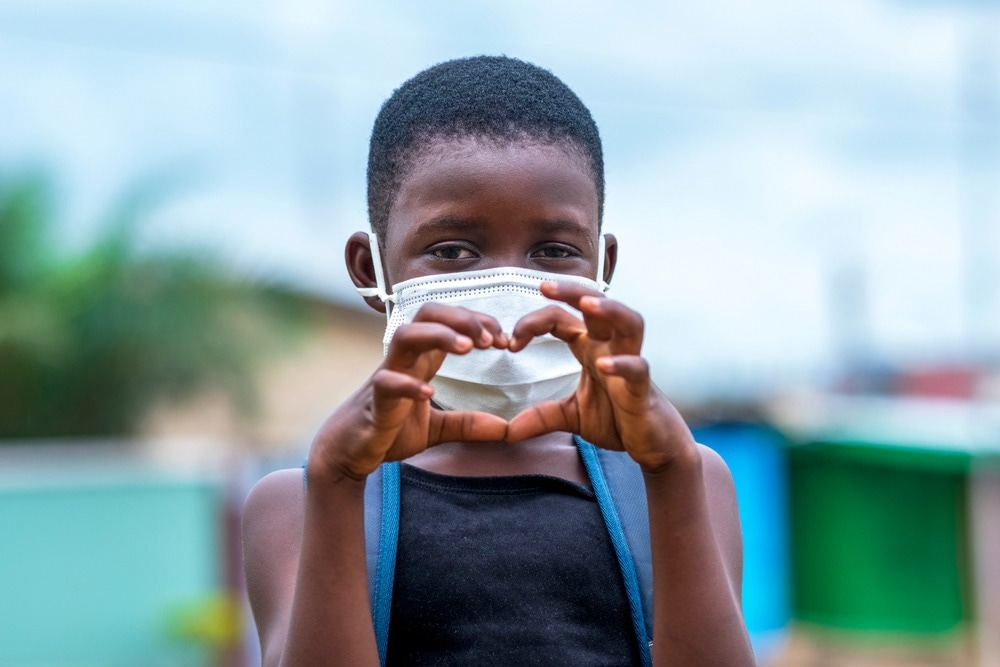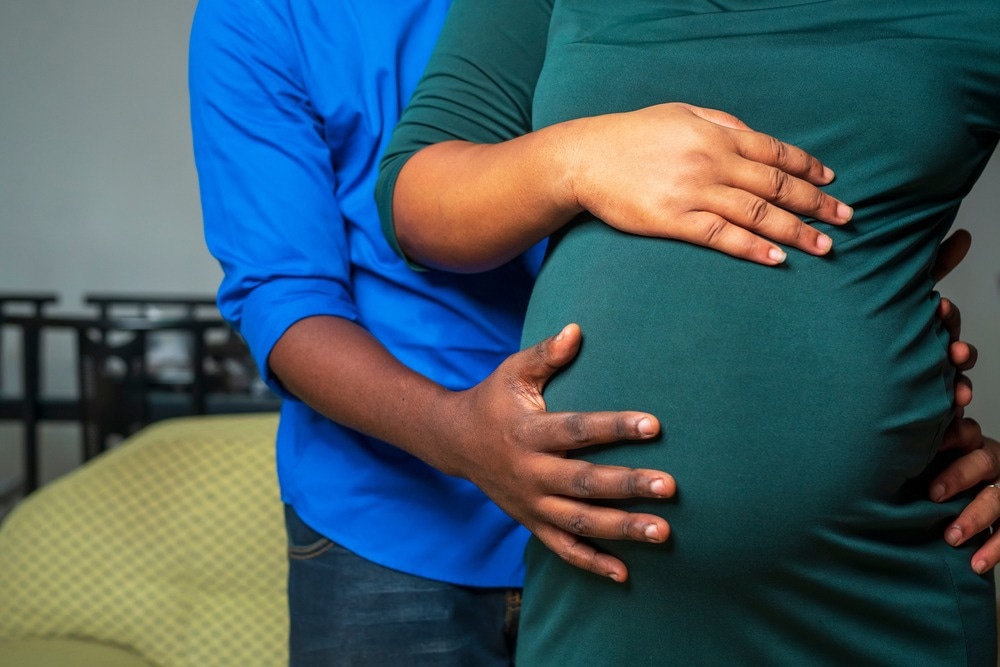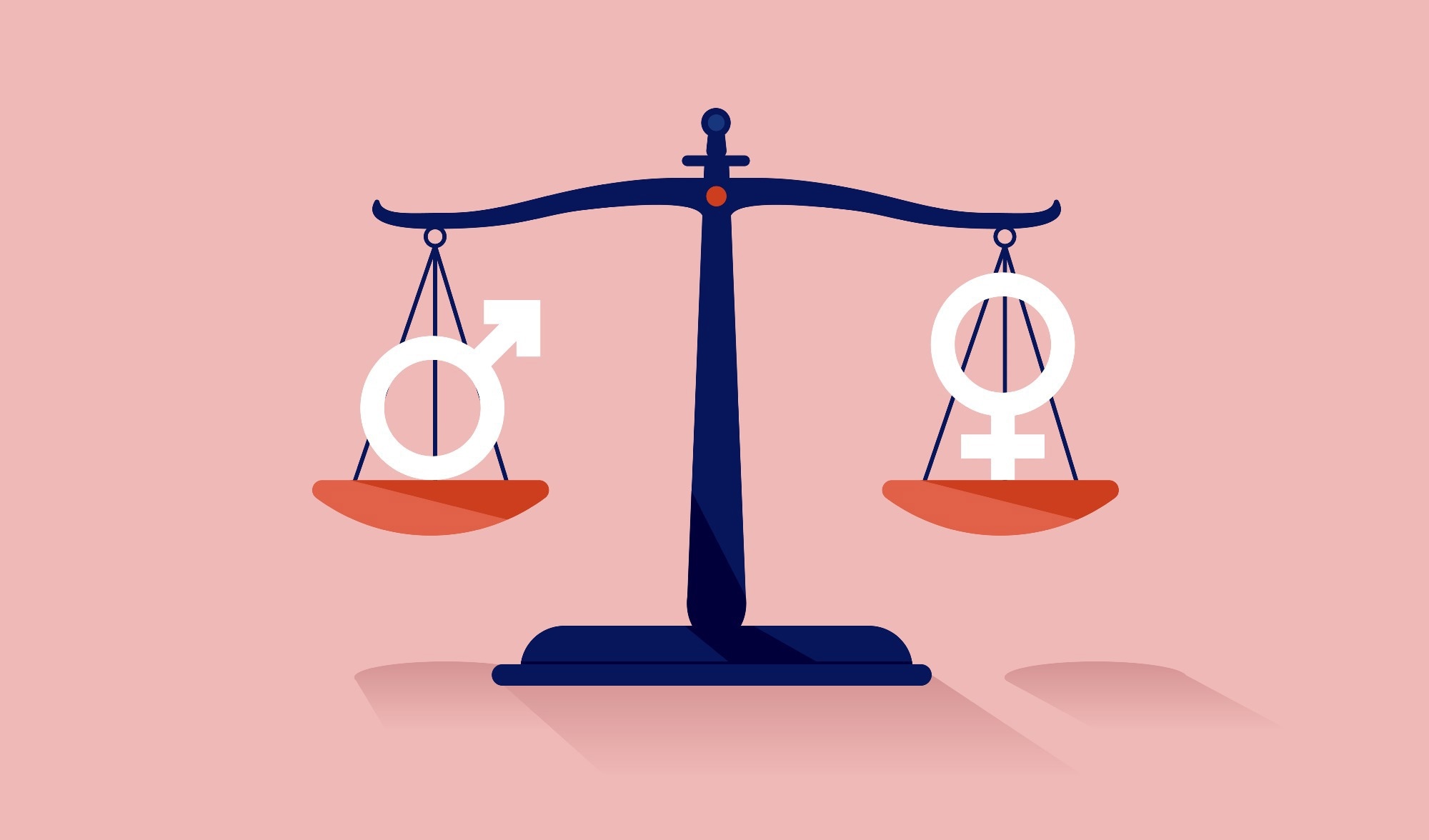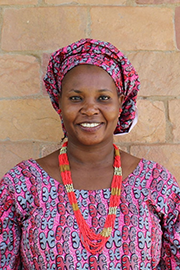Please can you introduce yourself and tell us what inspired your career as a doctor?
Born and raised in Mali, Dr. Mariam has dedicated her life to caring for the health of her community, particularly regarding child mortality. When it came to university, Mariam initially hoped to study engineering. However, this changed when she repeatedly witnessed her family's inability to access timely care for her siblings, resulting in the loss of three sisters.
She began her medical career by attending the University of Bamako's Faculty of Medicine, Pharmacy, and Dentistry and graduated in 2007. After graduation, she set out to improve the socio-health outcomes of Malians living in vulnerable communities, focusing on providing quality and timely maternal and child health services.
Women currently account for 70% of the health workforce globally but are often left out of decision-making, demonstrating that women deliver health, but do not lead it. As a woman in health, what are some of the biggest challenges women currently face when starting a career in health?
The biggest challenge, in my opinion, is not just reaching a leadership position but the challenges you face once you are a leader. For a woman to lead or work in a team, she is often confronted with the acceptance of her authority by her peers. Especially if she leads a team or works in a team with more men, she has to constantly prove her ability to do her job and is always in competition to prove her value.
Another challenge with leadership positions is aspects related to maternity leave, when the child(ren) or husband is sick, or when she needs to take the kids to school or other places. Certain organizations do not hire pregnant women for leadership positions or women of childbearing age, rather than attempting to accommodate these circumstances that are natural and common. This also relates to the challenge of the work-life balance. Between work, married life, and raising children, it is not always easy to be productive or diligent at work when she has no support.

Image Credit: Yaw Niel/Shutterstock.com
How will the recognition of gender inequalities in the health workforce help to improve global health security?
I believe it will increase the health coverage rate regarding the ratio of healthcare workers to the population since female healthcare workers are the most numerous. I also think women are very committed to taking on the challenges linked to health care in communities and are very compassionate, so if they are treated equally to their male counterparts, it can only improve global health security.
You have recently been awarded a Heroine of Health Award by Women in Global Health for your contributions and achievements. Please can you tell us about the work you are involved with that led to this award?
The organization I am currently working with is Muso, whose vision is to improve the health system through community health. Muso has developed a model for curing delays in health care, which consists of three pillars:
- Professionalized and paid community health workers who actively research patients in the community and deliver home-based care
- Strengthening the capacity of health centers in terms of infrastructure, staff training, and improvement of technical facilities to offer quality care to the population
- Care without user fees at all levels to overcome barriers and improve access to care
My job is to implement the vision and develop strategies to achieve our objectives. For instance, when the COVID-19 pandemic started, I developed several communication strategies to urge the population to overcome their fears (widely due to misinformation) and face this disease head-on that we would all eventually learn to live with.
The most important thing at the time was to find ways to protect oneself against this virus, but above all, to find ways to provide care that was not related to COVID to this population that was fleeing the health center at the time due to fears of contamination. The challenge was enormous! But with the strategies we put into place, the primary health center of the site I coordinated was one of the busiest in Mali during this period.
When the vaccine became available, it was necessary to act quickly so that the so-called fake news on social media would not create a barrier to the acceptance of the vaccine. Part of what I did was receive my first shot publicly to demonstrate the vaccine was harmless. Today, my intervention site has a vaccine coverage rate of the target population that exceeds the national objective of 70%. We have more than 80% of the population fully vaccinated. It is the only primary health center that has exceeded the national coverage rate.
Since I started coordinating Muso's urban site, the wait time for women at the health center has decreased for access to prenatal health and family planning services. In 2022, in my intervention site, 63% of women attended antenatal care in their first trimester, compared to 36% nationally.
Heroines of Health 2022: Leading Change
What does this award mean to you?
This award is a recognition for all the moments spent without my children and my family because I was giving care to other children, giving them a smile and hope to other families. This award is a source of motivation that encourages me to persevere in my work to redefine Mali's healthcare system so that access to rapid and quality care for the Malian population becomes a reality.
These awards have been set out to highlight incredible women who are the backbone of global health systems but are traditionally unrecognized. As an advocate for health, how important is it to showcase all the incredible women that work to make the world a better place, and what more should governments and policymakers be doing to support women in health?
Decision-makers can pass a law that obliges public and private health structures and humanitarian organizations to employ as many women as men. For example, in governments, parliaments, and many political structures, there is a mandatory quota for women that is respected.
Why not do the same in health care? And not just in the role of executors but also as leaders. This has to change because women are capable of meeting the challenges.
You have devoted your career to improving maternal and child health outcomes, redefining what the Malian health system is capable of. How important was it to you to work in remote communities?
We truly understand essential needs through contact with those who are most vulnerable. In the city, access to health care is easy, or at least easier, because there are more health care personnel, means of transportation, communication, and health centers, but in remote communities, the reality is quite different, which has inspired me.
I have seen many contexts and other realities that have motivated me to improve what is already being done or redefine it so that such a health system may resonate with everyone, rich or poor.

Image Credit: Yaw Niel/Shutterstock.com
As well as being a qualified doctor, you train workers and educate parents on reproductive health. How important is training and education in improving health outcomes in vulnerable populations?
Misinformation in health can cause a lot of damage as well as bad practices. I have been to communities where it is forbidden for a child to eat eggs or any other fruit from which skin is removed before eating it. In some communities, giving colostrum to the child is forbidden due to harmful beliefs concerning exclusive breastfeeding, among many others.
Even with the arrival of COVID and the vaccine, there has been so much misinformation. These women, families, and health workers I had to train to educate on good practices in family health and research and on access to rapid care were able to improve the health of their communities and families by adopting new health-positive behaviors and teaching each other. This led to other inter- and intra-community communication initiatives by community members to learn and act in time to prevent and treat certain diseases.
Throughout your career, what has been your proudest achievement?
Thanks to my work and the evidence that Muso has gathered through studies and research on process and system impact on my intervention site, decision-makers in my country are redefining the Malian health system. With Muso's technical assistance, universal health coverage, and quality, timely health care for all will become a reality through community health. I am proud to be a part of this process.
Are you hopeful that with continued awareness and support for women in health, we will one day see these women taking on higher, better-paid roles? What would this mean for global equality?
Yes, I am definitely hopeful, and thanks to initiatives such as the Heroines of Health award, women are encouraged and feel seen. Women will fight more and more for their rights because we have to know that no one else will fight this battle against inequality for us. This victory would only be fair since we represent more than half of health care personnel, which will only improve the population ratio to health care personnel and bring care closer to populations.
I think the WHO needs to consider how women can be more involved in decision-making and hold leadership positions in the health world. After all, women are the backbone of society in seeking care for the population.

Image Credit: Overearth/Shutterstock.com
How will the improvement of awareness surrounding women in health subsequently impact younger generations of women? Why is it important to inspire young women to start a career in health?
In one phrase: gender equality. Women have to work more to prove their worth and deserve their spot, and this is no longer acceptable. Women must realize that there is no inferior sex and that a woman is strong; we are perseverant and possess just as many skills in a management capacity to be good leaders. We must no longer be satisfied but must take our rightful place.
What is next for you and your work?
It is to demonstrate more evidence through studies, improve reproductive health outcomes, and maximize and multiply positive results, such as we were able to achieve for the COVID vaccination rates. My work and Muso's expertise in community health can positively impact other countries in redefining their health systems.
Our work and the multiplication of our impact must influence global health decision-makers to redefine the global health system so that every human being can have the right to access health care because we firmly believe that universal health coverage is possible.
Where can readers find more information?
About Dr. Mariam Cissé
Dr. Mariam Cissé joined Muso in 2017 as Urban Site Coordinator in Yirimadio, an underserved and fast-growing neighborhood on the outskirts of Bamako, where she manages programs designed to address the high child mortality rate in the area. Dr. Mariam supervises over 200 Community Health Workers (CHWs) and ensures the delivery of rapid care in over 51,000 households. Under her supervision, CHWs deliver a package of life-saving health care services in the home, including family planning and treatment for children with common illnesses such as malaria, pneumonia, diarrhea and malnutrition. In 2021 alone, Muso-supported CHWs in Yirimadio conducted 1.6M rapid care visits and provided treatment to more than 15,000 children.
In her 20+ years of public health service, she has worked with Muso, Hellen Keller International and USAID, and has trained hundreds of health professionals, directed teams, and oversaw the effective implementation of diverse health projects. In fact, over the course of six years, she trained approximately 6,000 women as health agents, equivalent to what we now call CHWs. Fluent in French, Bambara and Peulh, Dr. Mariam has worked with culturally and religiously diverse communities throughout Mali, training women on reproductive health and newborn and child nutrition.